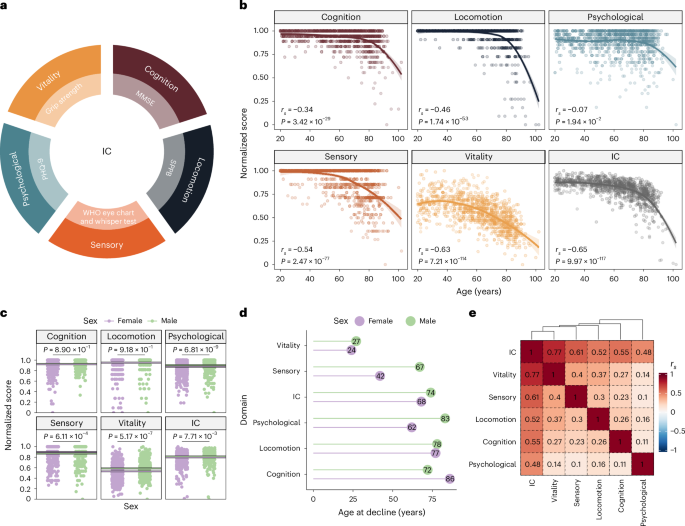Dementia is an umbrella term describing various conditions including Alzheimer’s, vascular dementia, Lewy body dementia

A psychologist has highlighted two key lifestyle adjustments that could help reduce the risk of dementia, a condition affecting more than six million Americans. Dr. Kellyn Lee, a chartered psychologist at the University of Southampton with extensive experience in researching this incapacitating disease and mental health, recently shared insights on TikTok.
She emphasised that dementia is not an inevitable part of ageing and can be prevented through certain actions. “This morning I want to talk about, ‘How do we reduce the likelihood of getting dementia?’,” Dr Lee said.
“Dementia is a massive problem – one in three people in the UK will be diagnosed with dementia. So, many people are asking, ‘OK, so how do I reduce the likelihood of me developing this disease?’
“..So, dementia [is] the umbrella term for Alzheimer’s, vascular dementia, Lewy body dementia, frontotemporal dementia, all of those different types…Dementia is not a normal part of ageing, it is a disease, it is a disease that is affecting one in three, it is a disease that affects more women than men.”
Firstly, Dr. Lee underscored the importance of maintaining a healthy diet to significantly cut down the risk of dementia. She particularly praised the Mediterranean diet, noted for its abundance of plant-based foods, olive oil, beans, and wholesome fats.
Her opinions are supported by new studies, such as a 2025 study from Tulane University that found rats on a Mediterranean diet experienced gut bacterial shifts linked to improved memory and brain function. A 2016 review also confirmed that multiple randomised controlled trials have shown the cognitive benefits of the Mediterranean diet, though it noted more research is needed.
Dr Lee explained: “So, diet in terms of a variety of different foods, so the Mediterranean diet is particularly good. The oily fish, the olive oil that we consume, great for brain function. Also, what we need to be looking at are things like lentils… Lentils aren’t necessarily something that we eat on a regular basis, so they may not be something that are necessarily easy to introduce into the diet.
“However, even if you introduce them once a week, you know, that’s a start. Beans, black beans, cannellini beans, baked beans, you know, any kind of bean. They are really good in terms of fibre, diversity of fibre as well.
“We don’t just want to look at Weetabix [and say] that’s got a lot of fibre in. Yes, Weetabix are fine, but actually you want more natural fibres [too]. We are looking at things like beans and legumes, looking at that kind of food.”
In addition to dietary habits, Dr. Lee highlighted the importance of physical activity for mental acuity, which is corroborated by extensive research, including a recent study from the Norwegian University of Science and Technology.
While current guidelines recommend 150 minutes of moderate or 75 minutes of vigorous exercise weekly, the research suggests that even minimal physical activity can benefit brain health. Meanwhile, further research from Bristol University found that mice on a consistent aerobic exercise regimen saw a 63% decline in ‘tau tangles’.
These are abnormal protein build-ups and often a key sign of Alzheimer’s disease. Dr Lee continued: “Exercise is important in terms of elevating mood. We can learn new skills in terms of exercise, we can do new things. So, that also keeps the brain function going.
“…If we increase the fibres that we eat, the nutrients that we are having, the exercise that we do and equally our ability to learn new things, that will enable us to reduce the risk of dementia.”

Do I have dementia?
Dementia is an umbrella term describing several conditions linked to the ongoing decline of the brain. Signs during its onset may include:
- Finding it hard to carry out familiar daily tasks, such as getting confused over the correct change when shopping
- Difficulty concentrating
- Mood changes
- Struggling to follow a conversation or find the right word
- Memory loss
- Being confused about time and place
NHS advice urges anyone experiencing these symptoms to visit a medical professional for advice.







